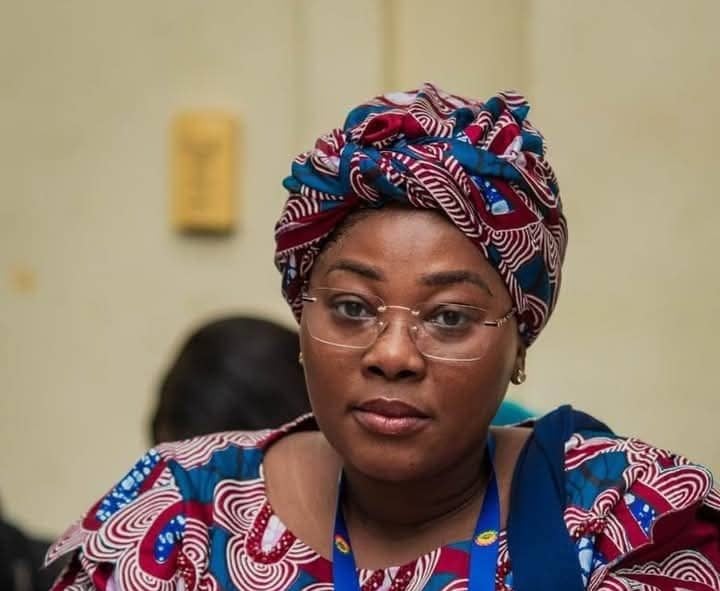Hajia Fatahiya Abdul Aziz, Member of Parliament for Savelugu, has expressed serious concerns about the implementation of President Mahama’s Free Sanitary Pads initiative. While lauding the initiative’s noble goal of ensuring girls’ uninterrupted education, she cautions that poor execution could lead to mismanagement, squandered resources, and broken promises. She stresses that good intentions must be coupled with meticulous planning and effective implementation to achieve the desired outcomes. Abdul Aziz fears the initiative might become a symbol of failure if not handled judiciously. She advocates for a measured approach, prioritizing the underserved northern regions initially while simultaneously addressing the widespread lack of adequate sanitation facilities in schools nationwide.
Abdul Aziz, speaking from her perspective as a woman, mother, and lawmaker, expresses anxiety rather than celebration. She highlights the glaring disparity between the allocated budget and the actual cost of providing quality sanitary pads to two million girls. The government’s allocation of GH¢146 per student annually falls significantly short of the monthly cost of sanitary pads, ranging from GH¢15 to GH¢40. This discrepancy raises questions about the initiative’s genuine commitment versus its potential use as a political maneuver. Furthermore, she emphasizes the geographical inequity, noting that girls in the impoverished northern regions, where the need is greatest, remain largely underserved. This uneven distribution casts doubt on the program’s commitment to equity and inclusion. The continued exclusion of girls in rural districts underscores this concern.
The MP identifies the lack of adequate infrastructure in schools as a major impediment to the initiative’s success. Citing a 2024 SEND Ghana report, she points out that 63% of basic schools lack proper toilet and hygiene facilities. Distributing sanitary pads without addressing these fundamental sanitation needs could be counterproductive, exposing girls to potential embarrassment and health risks rather than empowering them. This highlights the interconnectedness of menstrual hygiene management with broader WASH (Water, Sanitation, and Hygiene) infrastructure improvements. She emphasizes that simply providing pads without the necessary supporting infrastructure is a superficial solution that fails to address the underlying challenges.
Beyond infrastructure, Abdul Aziz raises a series of critical concerns regarding the initiative’s execution. She flags potential issues with delayed deliveries, substandard product quality, corruption in procurement and distribution, a model that fosters dependency rather than self-sufficiency, and the lack of a sustainable long-term funding framework. Each of these concerns, if left unaddressed, could undermine the program’s effectiveness and credibility. She advocates for a comprehensive approach that considers the entire supply chain and the long-term sustainability of the program. This includes addressing potential corruption, ensuring quality control, and fostering a sense of ownership within the communities.
To rectify these potential pitfalls, Abdul Aziz proposes several concrete recommendations. She urges the government to prioritize local production by revitalizing the cotton industry and establishing sanitary pad manufacturing hubs in underserved regions like Tumu and Tamale. This approach would not only provide a sustainable supply of sanitary pads but also stimulate local economies and create jobs. She further recommends offering tax exemptions on sanitary products and implementing data-driven strategies to target the most vulnerable girls. These measures would ensure that resources are used efficiently and reach those who need them most. Crucially, she emphasizes the importance of improving school infrastructure, specifically advocating for gender-friendly toilets with water and disposal facilities by 2026.
To ensure financial sustainability, Abdul Aziz suggests dedicating 1% of VAT revenue to menstrual health. This dedicated funding stream would provide a predictable and reliable source of financing for the program. Furthermore, she proposes using blockchain technology to enhance transparency in procurement and distribution, minimizing the risk of corruption. Regularly publishing performance reports would further enhance public trust and accountability. These recommendations aim to create a transparent, accountable, and sustainable system for managing the initiative. They also emphasize the importance of community involvement and public oversight.
Finally, Abdul Aziz appeals directly to President Mahama to implement these recommendations. She calls for a comprehensive, costed implementation plan that includes pilot phases in the northern regions before nationwide rollout. She also stresses the importance of engaging civil society, traditional leaders, and local assemblies as active collaborators in the process. This participatory approach would ensure local ownership and increase the likelihood of success. She concludes by urging all Ghanaians to demand accountability, support local manufacturing, and challenge the stigma surrounding menstruation. Abdul Aziz’s overarching message is that the Free Sanitary Pads initiative has the potential to be transformative but only if it is implemented with careful planning, transparency, and a genuine commitment to addressing the needs of all girls.


